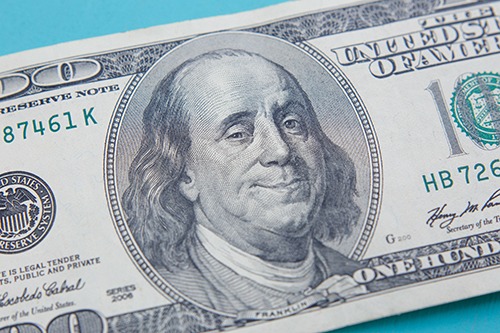702-660-7000
702-660-7000

In 1908 the Democratic Party included a proposal for a graduated income tax. It was marketed as a tax on the wealthy and a majority of Americans supported it. President Taft, who was a Republican, responded by asking Congress to tax the profits of large companies. With this kind of public and bipartisan support, Congress drafted the 16th Amendment to our Constitution. Ratification by the States and certified by the US Congress, the 16th Amendment became the law of the land on February 25, 1913.
The prevailing progressive thought of the day was that tariffs disproportionally taxed the poor, elevated prices for the public, while failing to raise enough revenue for the government. Yet, the income tax has not lowered the tax paid by the poor, nor has it lowered prices for the public, and it certainly hasn’t satisfied the ever-growing appetite of government.
In 1913, nobody paid income tax on the first $3,000 they earned. Furthermore, there was another, $1,000 exemption for married couples. In fact, it is a historical fact that only 4% of the public were subject to paying income tax the first year after the 16th Amendment was enacted. But this has certainly not held true over the years.
$3,000 in 1913 is equivalent to $83,745 in 2021. If the tax rates had not changed since 1913, then nobody earning less than $83,745 in 2021 would owe any income tax. Yet today only $12,400, the standard deduction on this $83,745, is tax exempt, or a $24,800 standard deduction for married couples. After this, a graduated income tax rate is applied to the rest of this income = $83,745 – $12,400 = $71,345.
This means $11,486 of taxes are owed by someone earning $83,754 in 2020. As median income across America was $68,703 in 2019, meaning 50% earned more and 50% earned less, the income tax has evolved to be more problematic for the poor than what the Democratic Party told the American people it would be back in 1913. In fact, poverty levels in the US, as of 2021, are considered to be anything below $12,880 per person, in the lower 48 states. Yet even this level of income is subject to income tax at a rate of 10% on $440 of this income which is over the standard deduction.
Corporate taxes are another matter. When corporations pay taxes, they merely transfer the cost of those taxes to the consumer, by increasing the costs of the goods they sell. This is why raising corporate tax rates does NOT facilitate lower prices for the public but instead creates higher prices for the public. Taxing companies and farmers who are producing the goods and services we the people need and want is not the way to reduce prices. Competition is what reduces prices for the public. If government really and truly wanted to reduce prices for the public, they would reduce the regulations they have instituted which restrict real competition.
As politicians and bureaucrats are not really interested in lowering prices for consumers but are very much interested in increasing the money they collect from the public so they can spend more on their special interest projects, it becomes imperative that we the people have a financial tool which truly combats this progressive taxation. That is where participating whole life insurance comes to the rescue.
Participating whole life insurance builds cash value without taxation and can be accessed in the future without paying taxes as well. As participating whole life insurance superseded the 16th Amendment to our Constitution, it retains the ability to grow income tax free and be used income tax free. Because of this unique feature participating whole life insurance can be used as the great equalizer when it comes to income taxes. Those who realize and appreciate this simple fact use participating whole life insurance to keep more of the money they make and end up building sustainable wealth.
Jesus told us, “The poor you will always have with you.” But like Benjamin Franklin said, “The best thing you can do for the poor is not to become one of them.” Don’t let the income tax rob you of the wealth which God has provided for you to earn, keep and manage.
Call us at 702-660-7000 and find out how you can keep more of the money you earn so you can build the sustainability which you need today and in the future.
 Dr. Tomas P. McFie
Dr. Tomas P. McFie
Most Americans depend on Social Security for retirement income. Even when people think they’re saving money, taxes, fees, investment losses and market volatility take most of their money away. Tom McFie is the founder of McFie Insurance which helps people keep more of the money they make, so they can have financial peace of mind. His latest book, A Biblical Guide to Personal Finance, can be purchased here.